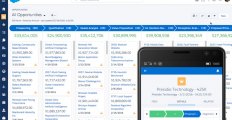Job hunting is challenging on any occasion but more so now because of the novel coronavirus pandemic. The impact of COVID-19 on employment is felt worldwide; many people are worried about losing their jobs and many more have lost their sources of income. But this 2021, employers are looking to hire workers. In that case, job seekers should always be ready with their resumes.
Resumes may sound like a thing of the past because of LinkedIn and online application forms in the best applicant tracking systems. The majority of Fortune 500 companies use ATS but resumes (and cover letters) remain essential. The resume statistics below discuss how it can impact a job applicant’s chances of getting an interview and being hired.

Must-Know Resume Statistics this 2021
Resume Length Statistics
How lengthy a job applicant’s resume is and how many sections it has can impact a person’s chances for an open position. At a time when 39% of workers feel less secure in their current jobs than they did three months ago because of the pandemic, it has become doubly crucial to pay attention to resume length and content. The resume statistics below can give job seekers insights into what makes a good resume and what they can do to make their own more attractive to potential employers.
- An ideal resume needs 475 to 600 words. (Cultivated Culture, 2021)
- But 77% of resumes fall short of the ideal length. (Cultivated Culture, 2021)
- One study shows that the average resume has 489 words. (Zety, 2021)
- 380 words is the single-page resume cutoff point. (Zety, 2021)
- Median resume length is 369 words. (Zety, 2021)
- Recruiters prefer two-page resumes and are 2.9 times more likely to pick a candidate that meets the standard for managerial roles. (Zety, 2021)
- Hiring professionals are 1.4 times more likely to pick candidates with two-page resumes for entry-level roles. (Zety, 2021)
- A resume that is longer than two pages would set off 17% of hiring professionals. (The Motley Fool)
- Resumes over 600 words are good for certain professions. But in business, long resumes make job seekers 72% less hireable. (TalentWorks, 2019)
- 51% of resumes have irrelevant buzzwords, cliches, and wrong pronoun usage. (Cultivated Culture, 2021)
Sections
A proper resume is divided into several sections. Each section is supposed to have an ideal number of words to make it more attractive to recruiters. Professional resume writers can help with that, but if not possible, there are resume templates to guide job seekers.
- A Key Skills section with 15 to 20 words can help a job seeker’s chances of getting an interview. (LiveCareer, 2020)
- But the skills section is present only in 89.81% of resumes analyzed in a study. (Zety, 2021)
- The personal information section is standard and is found in 99.85% of resumes. (Zety, 2021)
Apart from standard sections, 66% of job seekers like to add other sections (Zety, 2021).
- 31% – languages
- 27% – certificates
- 21% – additional activities
- 19% – interests
- 18% – software
- 16% – references
- 11% – courses
- 5.5% – licenses
- 5.3% – publications
- 4.7% – conferences
- 4.7% – legal clauses

Job-Hunting and Resume Statistics
Covid-19 was a huge blow to everyone around the world. The pandemic displaced millions of workers in many countries. But this 2021, the job outlook is becoming positive, as 82% of employers say they are planning to hire.
- 24% of hiring managers spend fewer than 30 seconds looking at resumes in general. (CareerBuilder, 2019)
- 75% of resumes are rejected by applicant tracking systems. This means only a quarter gets seen by human eyes. (TopResume, 2021)
- 56% of professionals consider a good resume to be more important now than they did three months ago. (Jobvite, 2020)
- 56% of workers view a good resume to be important than they did in the past three months. (Jobvite, 2020)
- This perception of the importance of the resume could lead to lying about their resume. Ten percent of job applicants admitted to doing so during interviews with recruiters. (Jobvite, 2020)
- 85% of recruiters agree that job applicants inflate their skills and competencies on resumes. (Monster, 2019)
- Candidates who hired professional resume writers have a 32% higher chance of getting a job. (Talent Inc., 2019)
- 68% of job seekers with professionally crafted resumes found jobs within 90 days. (Talent Inc., 2019)
- 25% of black candidates received callbacks when they whitened their resumes compared to 10% who left ethnic details. (LiveCareer, 2020)
- 21% of Asian candidates received calls due to their whitened resumes versus the 12% who left information regarding their ethnicity. (LiveCareer, 2020)
To have better chances of hearing (or reading) the words “You’re hired!”, there are some aspects of the resume you need to pay attention to.
- 54% of job applicants do not tailor their resumes to each position or employer. This signals a red flag to recruiters. (CareerBuilder, 2019)
- 84% of job seekers do not personalize the salutation on cover letters. Doing a little research and finding out the name of the hiring manager is always a good idea. (CareerBuilder, 2019)
- 35% of employers reject applicants with unprofessional email addresses. So it might be a good idea to change your email address before sending applications. (The Motley Fool)
- Around 77% of hiring professionals put resumes in the reject pile if they have typos or grammatical mistakes. (The Motley Fool)
- Professionally written resumes boost earning potential by 7% (TopResume, 2021). But since not everyone could afford that, a proper resume builder could be a huge help.
- 34% of hiring managers pass over resumes with little to no measurable results. Thus, applicants should do their best to quantify their achievements. (Knowledge Enthusiast, 2021)
- Candidates only included 51% of relevant keywords when those could increase their chances of an interview. (Cultivated Culture, 2021)
- Personal pronouns on resumes have a 55% negative hit. (TLNT, 2019)
- Using the words team player can hurt a job seeker’s chances by 51%. (TLNT, 2019)
- A career objective in a resume would have a 29.6% negative impact. (TLNT, 2019)
Certain modifications can give resumes a huge boost (TLNT, 2019):
- Action verbs increase the chances of an interview by 140%.
- Industry buzzwords give a boost of 29%.
- Leadership-oriented words can enhance a resume by 51%.
Source: TLNT, 2019
Valuable Skills
With innovative technologies and AI becoming more ubiquitous, the skills that employers are looking for are also changing. However, despite the availability of job seekers, only a few actually meet the skills requirements of organizations. Fortunately, employers and job applicants themselves can learn new skills and knowledge through learning management systems.
- 87% of employers struggle to find the right employees because of a skills gap. (Monster, 2021)
- 54% of workers apply to jobs even if they do not have all the skills listed as requirements. (Jobvite, 2020)
- 72% of job applicants believe that employers value specific skill sets, which helped them get jobs. (CareerBuilder, 2019)
- 62% of job descriptions list leadership and management as skills they are looking for in applicants. (CareerBuilder, 2019)
- 45% of open positions are requiring job seekers to have innovation and creativity. (CareerBuilder, 2019)
- 61% of employers value soft skills as much as they do hard skills. (Knowledge Enthusiast, 2021)
- A job opening description has 21.8 kills on average. (LiveCareer, 2020)
- 13 is the average number of skills job seekers include on their resumes. (LiveCareer, 2020)
- Only 47% of job applicants believe that job descriptions list actual responsibilities. (LiveCareer, 2020)
Employers search for the following skills on resumes (Knowledge Enthusiast, 2021):
- 37% – problem-solving
- 32% – the ability to deal with complex situations
- 31% – communication
Unfortunately, not many resumes meet the standard for both hard and soft skills (LiveCareer, 2020):
- They match only 59% of hard skills.
- Resumes match only 62% of soft skills.
Moreover, recruiters find that job seekers are lacking in the following technical and soft skills:
Technical skills
- 37% – trade skills
- 25% – engineering skills
- 16% – medical skills
- 12% – data analysis skills
- 10% – science skills
Soft skills
- 29% – critical thinking
- 23% – problem-solving
- 17% – creativity
- 16% – adaptability
- 15% – communication

Cover Letter Statistics
This is as important as the resume itself. Unfortunately, 45% of job seekers do not include a cover letter with their resume.
- 48% of giant tech companies require cover letters. (Ladders, 2019)
- 55% of medium-sized companies and 65% of fast-growing startups demand cover letters. (Ladders, 2019)
- 49% of hiring managers believe that attaching cover letters to resumes is the primary tactic that job applicants should apply. (LiveCareer, 2020)
- Another survey shows that 53% of employers prefer candidates who have cover letters with their resumes. (Cultivated Culture, 2020)
- But 74% of hiring professionals do not actually read cover letters. (Cultivated Culture, 2020)
- One survey revealed that only 10% of hiring managers actually take time to read cover letters. (Cultivated Culture, 2020)
- 47% of recruiters like candidates with cover letters because it shows motivation. (GetCoverLetter, 2021)
- 30% expressed that it offers more information about a job seeker. (GetCoverLetter, 2021)
- 23% said that cover letters show an applicant’s personality. (GetCoverLetter, 2021)
- 70% of recruiters agree that cover letters should not exceed 250 to 300 words. However, 30% of cover letters go over the ideal length. (GetCoverLetter, 2021)
- 26% of cover letters have bad formatting, making them unreadable. (GetCoverLetter, 2021)
- While a cover letter is an introduction to a resume, it should not copy it exactly. But 41% of cover letters commit that mistake. (GetCoverLetter, 2021)
- On top of that, 44% do not showcase or discuss a job seeker’s skills. (GetCoverLetter, 2021)
Are Cover Letters Still Relevant?
Source: Cultivated Culture, 2020; GetCoverLetter, 2021
Designed byWhat are the best resume formatting tips to follow?
Choosing the right resume format is as crucial as including the right content. A well-formatted resume ensures readability, aligns with industry expectations, and presents your information in a professional manner. Good formatting can increase the chances of your resume making it past applicant tracking systems (ATS) and catching the attention of recruiters.
Here are key resume formatting tips to enhance your application:
- Choose the Right Layout: Opt for a clean, professional layout with consistent font types and sizes. Use headers and bullet points to organize information clearly. Common fonts like Arial, Calibri, and Times New Roman are recommended for their readability.
- Stick to Standard Margins: Ensure 1-inch margins on all sides. This provides a balanced appearance and avoids overcrowding, helping ATS scan your resume accurately.
- Use Bullet Points for Readability: Bullet points make it easier for recruiters to skim your resume and locate important details quickly. Use short, impactful bullet points to describe your achievements and responsibilities rather than long paragraphs.
- Highlight Key Sections with Bold Text: Make important sections, such as your skills or job titles, stand out by using bold text. This can draw attention to your key strengths and roles without overwhelming the layout.
- Keep Line Spacing Consistent: Use single or 1.15 line spacing to create a professional look. This adds readability while ensuring that the resume doesn’t appear overly dense or empty.
- Save and Send in PDF Format: PDF is often preferred as it maintains your formatting and ensures compatibility across devices. Double-check if the job listing specifies a format; some ATS systems may require Word documents.
- Limit Color and Graphics: Stick to a minimal color palette (black and one accent color) for a professional appearance. Avoid complex graphics, as they can interfere with ATS compatibility.
Make Attractive Resumes
As the numbers above show, the best and most attractive resumes have certain characteristics. If you are a job seeker and you follow the data, then you can increase your chances of getting an interview. And if you nail a difficult job interview in a challenging recruitment process, then you can look forward to a new job.
To recap, you need to pay attention to the length of your resume. Contrary to popular belief, recruiters actually prefer two-page resumes. In some industries like education, three-page resumes are acceptable. It is also important to outline the skills you have, which would be helpful in the position you are applying for. But take care not to overuse buzzwords like team player, because it can actually hurt your chances of getting invited to an interview.
Additionally, do not forget to include a cover letter. Sure, many recruiters do not actually read those but they are still essential because they do scan those. And they look out for important things like length and salutation.
Lastly, do not forget to check current resume trends. Keeping yourself up to date with these can make your resumes more attractive to hiring managers.
Key Insights
- Resume Length:
- Ideal resume length is 475 to 600 words.
- Recruiters prefer two-page resumes, especially for managerial roles.
- Single-page resumes are often too short, while resumes over two pages can be detrimental in business fields.
- Sections of a Resume:
- Key skills section should have 15 to 20 words.
- 89.81% of resumes include a skills section; the personal information section is found in nearly all resumes (99.85%).
- Job seekers often include additional sections like languages, certificates, and interests.
- Impact of COVID-19 on Job Hunting:
- COVID-19 has increased job insecurity and impacted employment worldwide.
- Despite the pandemic, 82% of employers are planning to hire in 2021.
- Resume Quality:
- 75% of resumes are rejected by applicant tracking systems.
- Professional resume writers can significantly boost a candidate’s chances of getting a job.
- Personalizing resumes and cover letters can improve hiring prospects.
- Valuable Skills:
- Employers value both hard and soft skills, including problem-solving, communication, and leadership.
- A significant skills gap exists, with 87% of employers struggling to find candidates with the right skills.
- Cover Letters:
- Nearly half of job seekers do not include cover letters with their resumes.
- While not all recruiters read cover letters, many still find them important for evaluating motivation and personality.
- Ideal cover letter length is 250 to 300 words.
FAQ
- How long should my resume be? An ideal resume should be between 475 to 600 words. Recruiters generally prefer two-page resumes, especially for managerial roles. Single-page resumes may be too short, and resumes longer than two pages can negatively impact your chances in business fields.
- What sections should I include in my resume? Your resume should include essential sections like personal information and key skills. Additional sections such as languages, certificates, and interests can also enhance your resume. Ensure each section has an appropriate length to make your resume more attractive to recruiters.
- How has COVID-19 impacted job hunting? The COVID-19 pandemic has increased job insecurity and impacted employment worldwide. Despite these challenges, 82% of employers are planning to hire in 2021. It is crucial to be prepared with an updated resume and cover letter.
- How important is it to tailor my resume and cover letter for each job application? Tailoring your resume and cover letter for each job application is very important. Personalized applications show your genuine interest and effort, significantly improving your chances of being noticed by recruiters.
- What skills are most valuable to employers? Employers value a mix of hard and soft skills. Key skills include problem-solving, communication, leadership, adaptability, and technical skills specific to the job. Highlighting these skills in your resume can make you a more attractive candidate.
- Do I really need a cover letter? Yes, including a cover letter is important. While not all recruiters read them, cover letters are still scanned for key details like length and salutation. A well-crafted cover letter can show your motivation and personality, giving you an edge over other candidates.
- How can I make my resume stand out? To make your resume stand out, ensure it is the ideal length, includes essential sections, and is tailored to the job. Avoid overusing buzzwords, quantify your achievements, and use action verbs. Keeping up with current resume trends can also make your resume more attractive to hiring managers.
References:
- Belcak, A. (2021, January 25). We analyzed 125,000+ resumes, here’s what we learned. Cultivated Culture.
- Tomaszewski, M. (2021, April 12). Resume statistics 2021 (Analysis of 133,000 documents). Zety.
- CareerBuilder. (2019, March 3). How to create the perfect resume. CareerBuilder.
- Elmers, D. (2021). The job-search statistics all job seekers should know. TopResume.
- Backman, M. (2018, September 16). 5 resume stats all job seekers should know. The Motley Fool.
- Jaja, C. (2019, January 10). The science of the job search, part VIII: Your chances of an interview plummet if your resume is too long. TalentWorks.
- Jobvite. (2020, May 12). 2020 job seeker nation report. Jobvite.
- Monster. (2021). The future of work: 2021 global outlook. Monster.
- Monster. (2019, October 29). Monster recruitment survey highlights. Monster.
- Talent Inc. (2019, March 26). TopResume study confirms: Job seekers with professionally written resumes land new jobs sooner and earn more money. Talent Inc.
- Royse, M. (2020, December 16). Must-know resume statistics to stay competitive in 2021 . Knowledge Enthusiast.
- Sullivan, J. (2019, February 25). Why you can’t get an interview – Explained using job-search science data. TLNT.
- Sjoerdsma, D. (2020, September 22). Resume and cover letter stats and insights every job seeker should know. LiveCareer.
- Ladders Contributor. (2019, June 19). Do cover letters still matter? Here’s what data shows. Ladders.
- Belcak, A. (2020, August 7). How to write a job-winning cover letter [5+ free templates & examples]. Cultivated Culture.
- Harkusha, S. (2020, November 23). 2021 HR statistics [Trends, hiring, recruiting & interviews]. GetCoverLetter.





















The information was very informative.
Leave a comment!